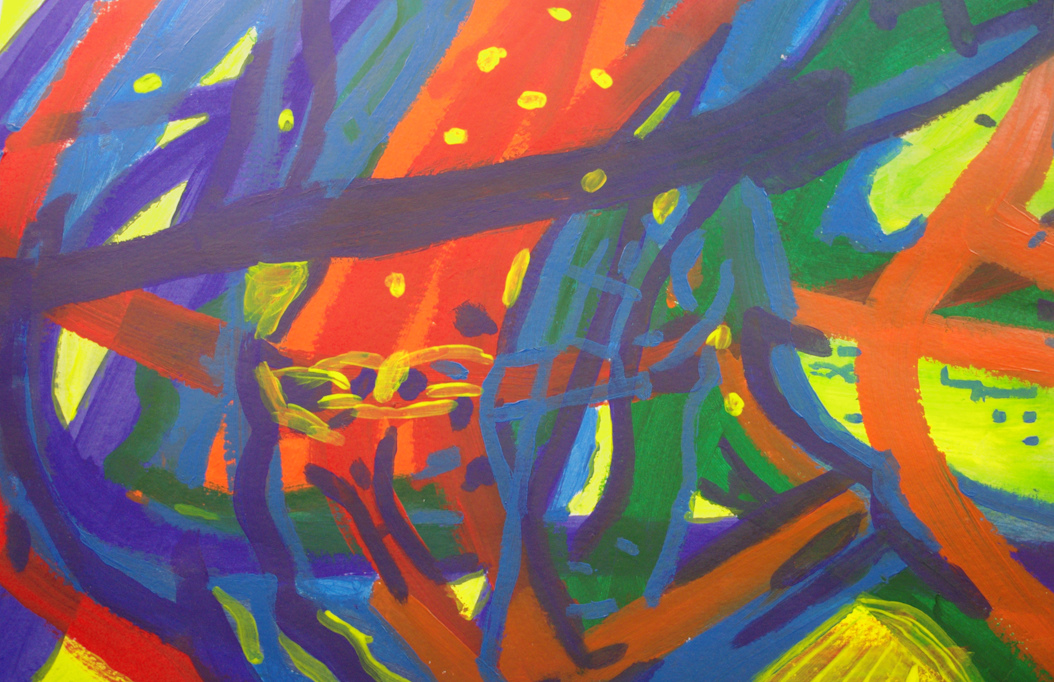I am still feeling a bit sick, can't seem to shake this illness. Will give it another week or so before I talk to a doctor in case it is Lyme's disease. Apparently there's no point until you've had it a while as the blood test is known to give false negatives if done in the first 4 - 5 weeks. I hope it clears up by itself, as I would rather not take antibiotics. They really mess up my gut system and it took me years to get it back to good health after the last round of anti-biotics I had. Also Western medicine doesn't always feel very welcoming, I don't find it very approachable, and I feel afraid of it. I think it is because the health services in the UK are stretched to breaking point at the moment after years of government austerity. Doctors and nurses are often tired and overworked, stressed out, burnt out, and it isn't their fault, but as a result some can be a bit terse and grumpy. I don't take it personally. I try to be kind and friendly, but it is not a pleasant experience seeking treatment in modern day medicine, and the treatments/medications can also feel a bit brutal on the body as well, they are often unpleasant, so I only tend to seek medical attention as a last resort.
I am thinking about stopping writing for a time. I am worried that I might put people off the dharma and the Buddha's teachings, which I don't want to do. I originally started writing about it because I found it helpful for me to articulate what I was learning, putting things into my own words helped me absorb the knowledge and remember it better. And Buddhism has been a great help for me with my own battles with mental illness, I have found its teachings much richer, deeper and more meaningful than those in modern day psychology. And I also wanted to share the insights I was getting with others in case it could help someone else out there.
But in hindsight, there's plenty of Buddhist resources online already, and my writing isn't that great to be honest, and isn't going to make much of a difference. It also can feel stressful sometimes, worrying about what I've written, if it is appropriate, kind or beneficial, whether it was wise or not. I find this anxiety can stop me being able to meditate. I am not a teacher of the dharma. Although I would like to be a dhamma teacher one day, because I like helping others, and the Buddha's teachings deserve to be preserved and passed on to future generations. But I would rather do that when I have been practising this for a good while, when I am much wiser than I currently am. It is important that a teacher of dharma is of the highest calibre, impeccable in conduct. Buddhism like all other religions is not without its scandals. It is a shame when that happens because it can tar the image of Buddhism, and fill students with doubt. It is a big responsibility to be a dhamma teacher. Because how a teacher behaves paints an image of the teachings in the public's eyes. Students look up to their teachers as examples, and a bad immoral teacher can cause a lot of harm, heartbreak and disillusionment.
Also, I am not sure that people in this age are all that interested in the true dharma. There are a few who are spiritually hungry and want to learn the deeper truths, but most are worldly and seeking material things and how they can increase that. I don't judge them, but I don't want use up all my energy on something that isn't going to benefit anyone in the long term, as that is tiring and vexing for me, and distracts me from my meditation. I think there's enough out there already online for the spiritually hungry to read and listen to. And I worry my voice might put people off the dharma, I really hope I haven't done that. So I will keep quiet now for a bit, and just focus on my own development and try to get a bit further along on the path if I can. Maybe when I am more spiritually developed and much wiser I will feel differently and share my insights again. But for now I will have a rest from writing I think.
I honestly don't have much else to write about on a blog other than the dhamma. I am not into the world much, I find it tedious, shallow and egoic, always have from an early age. I remember as a child thinking how inane it all was, this material world. Have always felt drawn towards the spiritual.
I won't write anymore about A.I. or politics or any other contentious issues either. I think I will stay away from those topics from now on. I am not against progress or technological development. I just worry about people who will lose their livelihoods and that there won't be any financial support for them. There doesn't seem to be much sign from governments that they will help those who are pushed out of work by automation. I also worry about the environmental cost of A.I., all the electricity needed to power these robots and huge server farms.
But it is true that many of the jobs robots will replace are horrible. I've worked in a few of those myself in the past. Zero hour contracts and cruel inhumane shift patterns. For example, finishing a shift late in the evening and then being expected to work again early the next morning. No holiday, no sick pay. Staff are treated like factory farmed humans. It is truly unpleasant.
The word: 'redundant', is also such a demeaning term. I dislike the view that a person only has value if they are employed in some way. That the only worth to a human life is if they are working or not. Where did that horrible view come from?
This is something important to bear in mind. That what the media tells us, what politicians tell us, what academics tells us, what the modern world says. It is just views, opinions, concepts conjured up by the thinking mind. One must always remember that the truth does not depend on science to verify it or endorse it. The truth exists regardless of what anyone thinks, it is outside of public opinion.
It will always be that good karma comes from love, generosity, friendliness, kindness, selflessness. And bad karma comes from greed, hate, and delusion (the conceit 'I am'). This has always been the case. Being unkind to others, violence, war, stinginess, self-centred arrogance and narcissism, will always lead to bad karma, either in this life or a future one.
The law of karma does not need the world of academia to prove whether it exists or not. It is very real, and being kind, giving, loving, friendly, peaceful, these make oneself and others much happier, they activate wholesome circuits in the mind that make us feel good, make us well, and that is why they lead to good outcomes. But greed, hate and delusion do not make us feel well, they are psychic poisons, a sickness, an affliction, toxic, and they feel unpleasant, and will lead to painful feelings for oneself and others, that is why they lead to bad outcomes.
Poverty is truly awful. It causes so much suffering in society. And it is unnecessary. There's enough wealth in the world for everyone to live a comfortable life and for there to still be enough for the rich to enjoy their luxuries. Generosity and kindness makes the world a better place for everyone. It makes us all happier, more fulfilled, brings us meaning and peace.
It is one of the reasons I put so much effort into the dharma. When you are poor, this world it is not pleasant at all, it is oppressive, unbearable, cruel, a trial of endurance, like a Hell. And it is hard to get out of poverty once you're in it, it feels like a trap. And it is harder to practise the spiritual life when one is stressed and in pain, always worrying about one's finances and making ends meet.
I take comfort and feel inspired knowing that many great meditation masters, especially from Thailand, such as Ajahn Chah, came from poor backgrounds, and they became great dharma teachers, and their influence is still being felt today, still helping people long after their deaths. They must have had a good store of karma from previous lives to be able to do that. So being wealthy doesn't necessarily mean one has good karma from a past life, or that good karma leads to one being wealthy in a future life.
Noble people are born to both rich and poor families. So take heart, that being poor doesn't necessarily mean one has bad karma from a previous life, or that it's a person's fault that they are in poverty. I think that way of thinking is erroneous nonsense. Many great spiritual people have come from poor backgrounds, as well as wealthy ones. To be born in this world means we all have a mix of good and bad karma, all humans are a mixed bag of light and shadow.
Wealthy people should not look down on those in poverty, thinking of them as lesser, blaming and shaming them; because having lots of money doesn't make you superior to those who have less. Virtue is the source of true wealth. It is what is in the heart that matters. The Buddhist path is open to everyone, rich or poor. Open to anyone who is willing to put in the effort to practise meditation, to study the dhamma. You can practise it in a mansion, a simple dwelling, or penniless living under a tree. The Buddha was homeless and dependent on the generosity of others. The dhamma is free to all, it doesn't cost anything, money is not necessary to be a Buddhist. That is truly liberating to know, especially in these times when there is so much inequality in the world. Because it means anyone willing to make effort with the noble eightfold path has the potential to become enlightened, whatever their circumstances.
...




